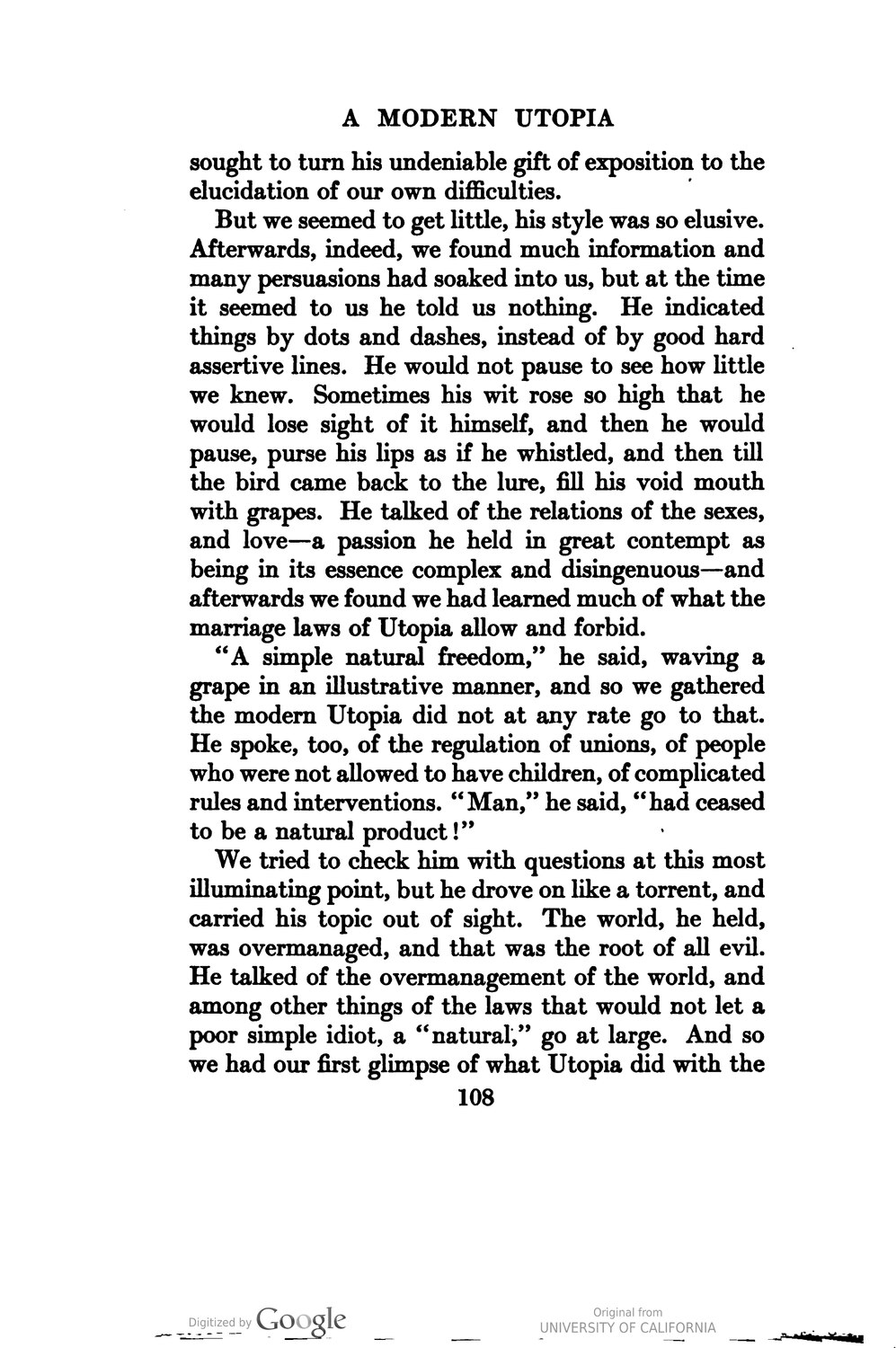A MODERN UTOPIA
sought to turn his undeniable gift of exposition to the elucidation of our own difficulties.
But we seemed to get little, his style was so elusive. Afterwards, indeed, we found much information and many persuasions had soaked into us, but at the time it seemed to us he told us nothing. He indicated things by dots and dashes, instead of by good hard assertive lines. He would not pause to see how little we knew. Sometimes his wit rose so high that he would lose sight of it himself, and then he would pause, purse his lips as if he whistled, and then till the bird came back to the lure, fill his void mouth with grapes. He talked of the relations of the sexes, and love—a passion he held in great contempt as being in its essence complex and disingenuous—and afterwards we found we had learned much of what the marriage laws of Utopia allow and forbid.
"A simple natural freedom," he said, waving a grape in an illustrative manner, and so we gathered the modern Utopia did not at any rate go to that. He spoke, too, of the regulation of unions, of people who were not allowed to have children, of complicated rules and interventions. "Man," he said, "had ceased to be a natural product!"
We tried to check him with questions at this most illuminating point, but he drove on like a torrent, and carried his topic out of sight. The world, he held, was overmanaged, and that was the root of all evil. He talked of the overmanagement of the world, and among other things of the laws that would not let a poor simple idiot, a "natural," go at large. And so we had our first glimpse of what Utopia did with the
108
